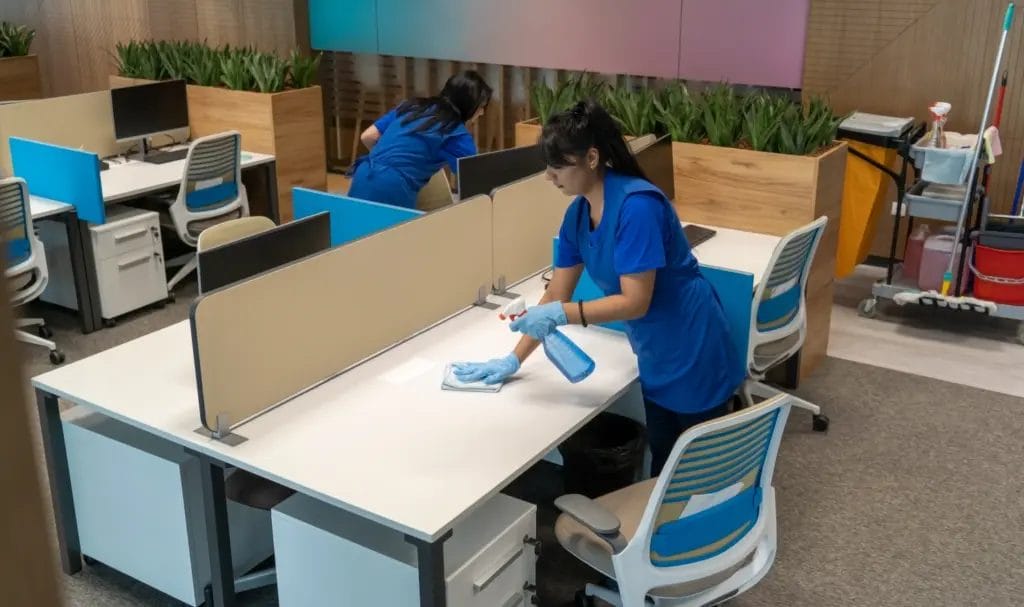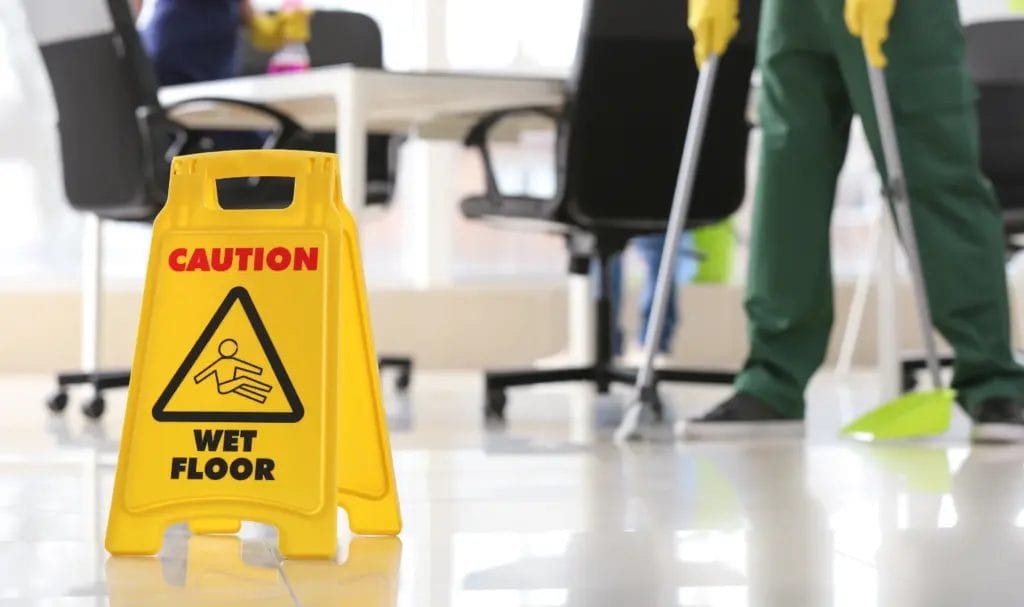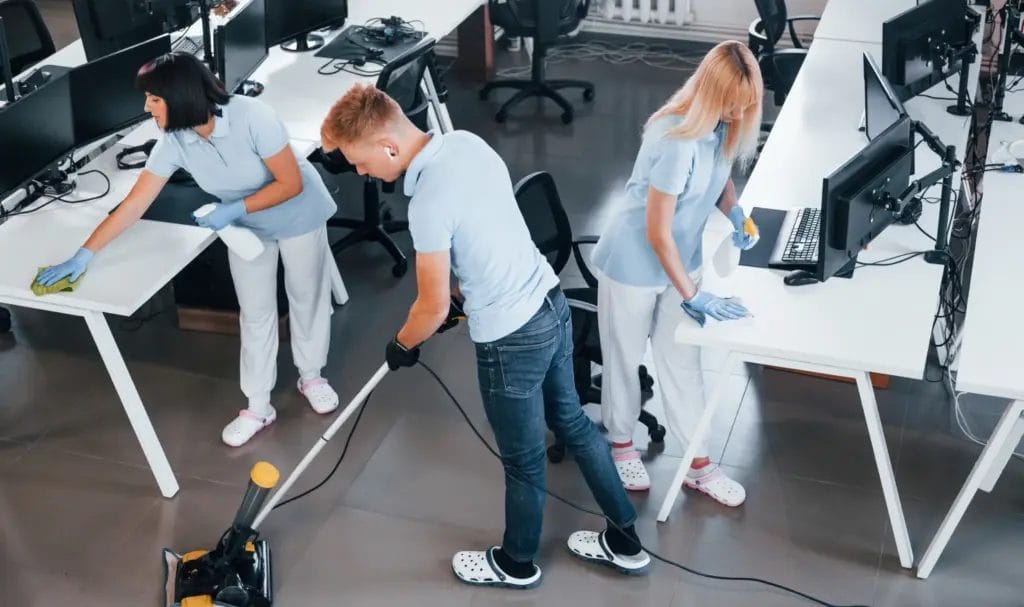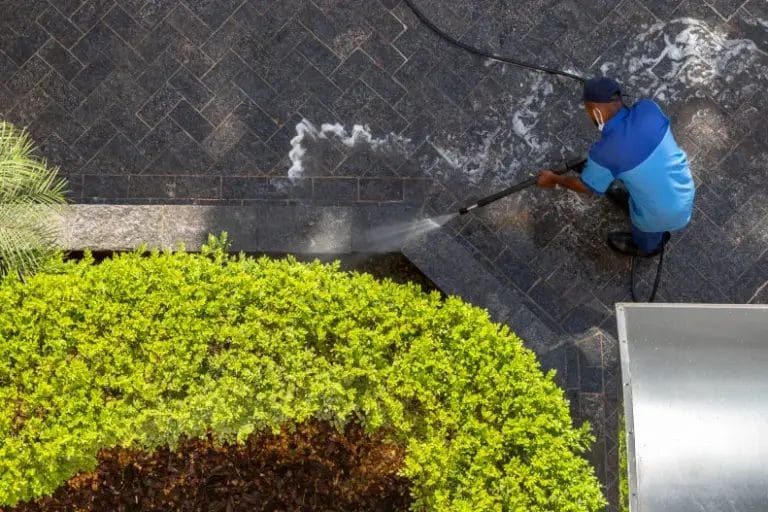Going from side-hustle to signing commercial contracts can be overwhelming, but, with some elbow grease and a solid plan, your business could really shine. We’ll fill you in on everything you need to know before starting a janitorial business – from getting licensed and buying supplies to choosing the right insurance. Let’s roll up those sleeves and get started!
What Makes Starting a Janitorial Business Worth It
Starting a janitorial cleaning business is a worthwhile venture in a growing industry. The sector is projected to be worth over $367 billion by 2030, with nearly 90% of that revenue coming from everyday commercial cleaning jobs. This strong demand offers a lower risk of failure for new startups, plus benefits like:
- Low startup costs: You don’t need fancy equipment or years of experience to get started — basic cleaning services are exactly what most clients want
- Steady income: Businesses are increasingly outsourcing their cleaning, creating a need for reliable, recurring contracts
- Growth potential: Start with regular janitorial services and expand into specialty cleaning as your business grows
Your work is the hero behind the sparkle, keeping essential spaces clean, tidy, and running smoothly.

1. Research Your Local Market
Getting to know your local market’s need for janitorial services provides insight into your competition and customer base. Here’s how to get started:
- Research your competition. Search for “janitorial businesses near me” online to compare competitor websites, services, and pricing. What could you do differently or better?
- Identify your target customer. Consider the businesses in your area that need routine cleaning, like medical offices, storage facilities, or corporate offices. What services do they need, and what’s their budget?
- Find your niche. Think about your skillset and what gaps in the market need filling. You might focus on healthcare facilities, use eco-friendly products, or create custom-built plans.
Trend Alert: Stand Out with Green Cleaning
Sustainability is important to many businesses now more than ever. Using green cleaning solutions like non-toxic chemicals, energy-efficient equipment, and waste reduction strategies gives you a competitive edge and a positive image for your brand.
2. List Your Services and Pricing
Regular cleaning services like vacuuming, mopping, and wiping down surfaces are standard across the industry. They’re affordable, simple to perform, and meet the needs of most businesses.
Daily and Weekly Janitorial Services
- Sweeping, mopping, and vacuuming floors
- Wiping down desks, counters, and other touchpoints
- Restroom cleaning and restocking
- Trash removal
- Dusting surfaces and fixtures
Make your business shine by offering specialized services that are specific to the business type or require more time and effort.
Speciality Services
- Floor buffing and waxing
- Carpet and upholstery cleaning
- Window cleaning
- Deep-cleaning services
- Sanitization services
How To Price Your Janitorial Work
The cost of your services can depend on the facility size, type, and cleaning frequency. Be sure to factor in how much the job costs you, including the cost of supplies, you and your employees’ salaries, and any overhead.
Our commercial cleaning pricing guide will help you determine how to competitively price your services for a profit using the following rates:
- Hourly: How much you or your employees make per hour
- Flat rate: A one-time fee charged once a month for ongoing maintenance
- Room rate: A flat rate amount charged by the number of rooms in a building
- Area size: An amount charged based on total square footage

3. Create a Business Plan
A janitorial business plan is a snapshot of how you will run your business. It helps you stay on track and outlines your services, marketing strategies, and finances. During your first year, you might make several changes to improve your strategy and follow market trends.
Here’s what a typical commercial cleaning business plan looks like:
- Executive summary
- Company overview
- Team structure (you and any employees)
- List of services and pricing strategies
- Market research
- Marketing strategies
- Financials (budget, expenses, sales forecast, etc.)
- Certificate of Insurance (COI)
✅ Pro Tip: Thinking about applying for a business loan? You’ll need a business plan to show investors you’re serious and that you’ve done the research to ensure your business is profitable.
4. Name and Register Your Business
Make your business official by giving it a name and registering it with state and local agencies. Browse our list of creative cleaning business names to get started. If you already have one in mind, search your Secretary of State’s website to verify it isn’t taken.
Then, follow these steps to register your janitorial business:
- Purchase a domain name. Secure your website and social media handles to match your business’s name. This will be critical to marketing your business online.
- Choose your business structure. Sole proprietorships and limited partnerships are easier to start with minimal paperwork, but you’re personally liable for any debts or losses. Most small cleaning companies structure their business as a Limited Liability Corporation (LLC).
- Register at the state and local levels. Visit the U.S. Small Business Association (SBA) website to learn how to register your business and the paperwork you’ll need.
- Get an Employer Identification Number (EIN): You’ll need this number to open a business bank account and file taxes, especially if you plan to hire employees or form an LLC. Apply for free on the IRS website.
Have questions? Take a deeper dive with our complete guide to starting a cleaning business.
5. Secure Licensing and Certifications
In addition to registering your business with the state, other types of licensing and certifications you can expect to need include:
- Local business license: Check with your Chamber of Commerce to see if you need a special business permit to comply with local ordinances and zoning laws.
- Vendor’s license: You provide a taxable service, so you’ll need to obtain a vendor’s license through your state’s Department of Taxation to collect and remit sales tax.
- Special certifications: Build your credibility and win contracts with certifications through the International Janitorial Cleaning Services Association (IJCSA) or the Institute of Inspection, Cleaning, and Restoration Certifications (IICRC).
- Certificate of Insurance (COI): You need a COI to get contracts and show clients you can be trusted. Get instant proof of insurance when you insure your business with Insurance Canopy.

6. Protect Your Business with Insurance
Imagine you’re mopping the floor and one of the office employees ignores your wet floor sign, slips, and hurts their back. Without insurance, you could be paying out of pocket for medical bills and legal costs.
That’s where janitorial insurance steps in. It’s a type of liability insurance that protects you from the risks of owning a commercial cleaning business, like third-party injuries and property damage.
How Much Does Insurance Cost for a New Janitorial Business?
The cost of janitorial insurance with Insurance Canopy starts at $39 per month — the same cost as a mop bucket with a wringer, but it cleans up even bigger messes.
The final cost depends on your business size, services, and additional coverages, like:
- Tools and Equipment Coverage: Pays to replace stolen or damaged equipment so you can get back to work and avoid losing clients
- Workers Compensation Insurance: Covers your employees’ medical bills and wages due to work-related injuries and illnesses
- Commercial Auto Insurance: Protects your business, vehicle, and equipment from accidents, damages, and liability while driving for work
- Janitorial Bonds: Required by most commercial contracts, bonding protects you when an employee is accused of stealing from a client
Warranty. Shmarranty.
Gloves? ✅ Portable blower? ✅ Insurance to protect your equipment? ✅
Most equipment warranties only cover manufacturing defects. If your equipment is stolen or damaged on the job, replacing it can take time and money. Our tools and equipment coverage insures the stuff you need to get the job done.
7. Plan Your Startup Costs & Equipment
According to the IJCSA, the average startup cost for a small janitorial business is $3,500. This includes licensing fees, website costs, insurance premiums, supplies, and equipment. Use this startup cost calculator to determine how much it costs to start your janitorial business.
Investing in quality equipment can save you time and effort, but you don’t need to spend big bucks on everyday supplies. Check out our basic cleaning supply list and follow these tips for stocking up:
- Budget before you buy: Avoid putting the cart before the…er, janitor? Only buy what you need for the first few jobs, starting with the basics.
- Consider off-brand: Brand name cleaning products aren’t always necessary. See if you can find a product with the same active cleaning ingredients at a cheaper price.
- Buy in bulk: Save money buying in bulk at janitorial supply stores like ULINE. There, you can find anything from cleaners and breakroom supplies to vacuums and floor signs.
8. Polish Your Brand
Worried your business looks too small to win contracts? Strong branding helps you look professional and trustworthy from day one.
Start simple with your business name, a logo, and a color scheme you’ll use everywhere — from your website to uniforms. Stay consistent with fonts, colors, and messaging so clients instantly recognize your brand. If design isn’t your strength, hire a freelance designer on platforms like Fiverr for help.
Most importantly, ensure your brand reflects reliability and safety. Clients want a cleaning partner they can depend on — branding shows them you’re that professional.

9. Go Solo or Hire A Team
You might be able to cover the first two or three contracts on your own, but any more than that and you’ll need to consider hiring some help.
Hiring employees helps you scale your business, take on more contracts, and continue to provide quality service. Plus, if you get sick or injured on the job, your employees keep the business running.
Like choosing the appropriate cleaning solution for a hardwood floor, your employees must be a good fit for your business. Perform background checks, ask for references, and train them to your standards. You’ll also need workers comp insurance, since it’s legally required in most states.
10. Sweep Up New Clients & Build Loyalty
Finding your first clients is easier than you think. Ask your friends and family if they know anyone who might need your services. Then, try these other strategies for marketing your business:
- Reach out to local businesses: Start with who you know, like your dentist, hairstylist, or chiropractor
- Use branded materials: Uniforms, vehicle wraps, door hangers, business cards, and brochures look professional and help spread brand awareness
- Optimize your website: Rank higher in local search results by creating content that’s specific to your area and includes relevant keywords, like “janitorial services in Seattle”
- Create a Google Business Profile: List your business on Google for free and make it easier for businesses to find you and write reviews
- Build your social media presence: Post frequently on Instagram, TikTok, and Facebook, using high-engagement content like before and after photos and timelapse videos
- Take advantage of networking opportunities: Join your local chamber of commerce and attend industry-specific events to boost your chances of finding clients or clients finding you
- Use referral programs: Encourage your current clients to refer your services to fellow business owners for a discount
- Value your clients: Personalized service, customer satisfaction surveys, and loyalty programs strengthen relationships with existing clients for long-term success
Protect Your Janitorial Startup with Insurance
Your commercial cleaning business deserves a safe start. Insurance Canopy offers fast, reliable coverage with unlimited additional insureds, nationwide protection, and 24/7 customer support. Get a quote today, or contact us to speak with a licensed insurance agent about the best policy for your business.
FAQs About Starting a Janitorial Business
How Long Does It Take to Get a Janitorial Business Started?
It can take as little as a few weeks to a few months to start a commercial janitorial business. The actual time varies based on your other responsibilities and how long it takes to secure equipment, get licensed, and find clients.
Here’s a breakdown of the typical timeline:
- Planning and Research (1-2 Weeks): Perform market research, create a business plan, and choose your business structure.
- Legal and Financial Setup (1-3 Weeks): Register your business, obtain licenses and permits, and get insurance.
- Equipment, Supplies, and Marketing (1-4 Weeks): Buy equipment, gather marketing materials, and reach out to potential clients.
Insurance Canopy helps you launch your dream sooner with an instant quote and proof of insurance for same-day coverage.
Do You Need Insurance to Run a Cleaning Business?
Yes, you need insurance to run a cleaning business. Most clients require it in their contracts, and it provides crucial financial protection against common risks like injuries, property damages, and theft.
Do I Need a License to Start a Janitorial Business?
Yes, you will likely need a license to start a janitorial business. To obtain a general business license, you must register your business with your Secretary of State. You may also need a vendor’s license if your state requires sales tax on cleaning services.
Contact your local city hall, county clerk’s office, and state Department of Revenue to determine all required permits and special licensing.
How Much Does a Cleaning Business Permit Cost?
Cleaning business permits cost between $100 and $500. The final cost to get a license depends on the state you live in, the size and structure of your business, and the types of services you offer.





